The Old Dominion’s most influential colonial governor, William Berkeley (1642-1652 and 1660-1677) was “bitterly hostile” to religious nonconformists, especially Puritans and Quakers. A law was enacted under his leadership to “preserve the Established Church’s Unity and purity of doctrine” by punishing any dissenting minister who attempted to preach in Virginia. During the reign of William and Mary, the Toleration Act of 1688 allowed non-Catholic ministers to preach under certain conditions, a change that applied to Virginia. When the Revolution broke out nearly a century later, however, religious dissenters in the colony still hadn’t gained much beyond being tolerated.
The selection of Peter Muhlenberg as colonel of the 8th Virginia was clearly an effort to gain the support of the valley’s Germans for the cause. So too was the selection of Abraham Bowman for lieutenant colonel: he was the grandson of Jost Hite, who had led one of the first groups of German settlers to Virginia from Pennsylvania. Major Peter Helphenstine, the oldest but most junior of the three field officers, had immigrated to the valley from Germany as an adult. As residents of Woodstock, Strasburg, and Winchester, respectively, the three men also covered the geography of the heavily German lower (northern) Shenandoah Valley. Settlers in the upper (southern) Shenandoah Valley; the New and Holston river valleys of southwest Virginia; and the region around Fort Pitt in what is now southwestern Pennsylvania were also recruited for the regiment. Scotch-Irish Presbyterians predominated in these areas and were, at least by reputation, already willing to fight.
On August 16, 1775, several months before the 8th Virginia was authorized, the Third Virginia Convention adopted a resolution offered by Patrick Henry to grant the Baptists’ request to have their own military chaplains and excuse Baptist soldiers from attending Anglican services. The following summer, while the 8th was serving in the Carolinas, the Fifth Virginia Convention adopted the Virginia Declaration of Rights. This precursor to both the Declaration of Independence and the Bill of Rights proclaimed that “all men are equally entitled to the free exercise of religion, according to the dictates of conscience; and that it is the mutual duty of all to practice Christian forbearance, love, and charity toward each other.”
The Virginia Statute for Religious Freedom was drafted in 1777 by Thomas Jefferson and enacted into law in 1786, formally disestablishing the Church of England (known thereafter as the Episcopal Church). Massachusetts was the last state to disestablish its state church, a predecessor of today’s United Church of Christ, in 1833. The Virginia Statute for Religious Freedom [Drafted 1777, Enacted 1786] Whereas, Almighty God hath created the mind free; That all attempts to influence it by temporal punishments or burthens, or by civil incapacitations tend only to beget habits of hypocrisy and meanness, and therefore are a departure from the plan of the holy author of our religion, who being Lord, both of body and mind yet chose not to propagate it by coercions on either, as was in his Almighty power to do, That the impious presumption of legislators and rulers, civil as well as ecclesiastical, who, being themselves but fallible and uninspired men have assumed dominion over the faith of others, setting up their own opinions and modes of thinking as the only true and infallible, and as such endeavouring to impose them on others, hath established and maintained false religions over the greatest part of the world and through all time; That to compel a man to furnish contributions of money for the propagation of opinions, which he disbelieves is sinful and tyrannical; That even the forcing him to support this or that teacher of his own religious persuasion is depriving him of the comfortable liberty of giving his contributions to the particular pastor, whose morals he would make his pattern, and whose powers he feels most persuasive to righteousness, and is withdrawing from the Ministry those temporary rewards, which, proceeding from an approbation of their personal conduct are an additional incitement to earnest and unremitting labours for the instruction of mankind; That our civil rights have no dependence on our religious opinions any more than our opinions in physics or geometry, That therefore the proscribing any citizen as unworthy the public confidence, by laying upon him an incapacity of being called to offices of trust and emolument, unless he profess or renounce this or that religious opinion, is depriving him injuriously of those privileges and advantages, to which, in common with his fellow citizens, he has a natural right, That it tends only to corrupt the principles of that very Religion it is meant to encourage, by bribing with a monopoly of worldly honours and emoluments those who will externally profess and conform to it; That though indeed, these are criminal who do not withstand such temptation, yet neither are those innocent who lay the bait in their way; That to suffer the civil magistrate to intrude his powers into the field of opinion and to restrain the profession or propagation of principles on supposition of their ill tendency is a dangerous fallacy which at once destroys all religious liberty because he being of course judge of that tendency will make his opinions the rule of judgment and approve or condemn the sentiments of others only as they shall square with or differ from his own; That it is time enough for the rightful purposes of civil government, for its officers to interfere when principles break out into overt acts against peace and good order; And finally, that Truth is great, and will prevail if left to herself, that she is the proper and sufficient antagonist to error, and has nothing to fear from the conflict, unless by human interposition disarmed of her natural weapons free argument and debate, errors ceasing to be dangerous when it is permitted freely to contradict them: Be it enacted by General Assembly that no man shall be compelled to frequent or support any religious worship, place, or ministry whatsoever, nor shall be enforced, restrained, molested, or burthened in his body or goods, nor shall otherwise suffer on account of his religious opinions or belief, but that all men shall be free to profess, and by argument to maintain, their opinions in matters of Religion, and that the same shall in no wise diminish, enlarge or affect their civil capacities. And though we well know that this Assembly elected by the people for the ordinary purposes of Legislation only, have no power to restrain the acts of succeeding Assemblies constituted with powers equal to our own, and that therefore to declare this act irrevocable would be of no effect in law; yet we are free to declare, and do declare that the rights hereby asserted, are of the natural rights of mankind, and that if any act shall be hereafter passed to repeal the present or to narrow its operation, such act will be an infringement of natural right. More from The 8th Virginia Regiment
0 Comments
He is best-known as the rector of a Shenandoah Valley (Anglican) parish and colonel of the 8th Virginia Regiment, which was raised on the frontier and initially intended to be a “German” regiment. The famous but poorly-documented farewell sermon he delivered in Woodstock, Virginia, in the spring of 1776 has been the subject of epic poetry and modern political debate. After a tour of the southern theater under Maj. Gen. Charles Lee, he was made a brigadier general. His brigade of Virginians was in Maj. Gen. Nathanael Greene’s division at Brandywine and Germantown. He was at Monmouth and remained in the army to the end of the war. He played an important role in the Virginia campaign leading up to Yorktown. ...continue to The Journal of the American Revolution. More from The 8th Virginia Regiment |
Gabriel Nevilleis researching the history of the Revolutionary War's 8th Virginia Regiment. Its ten companies formed near the frontier, from the Cumberland Gap to Pittsburgh. Categories
All
Archives
June 2024
© 2015-2022 Gabriel Neville
|
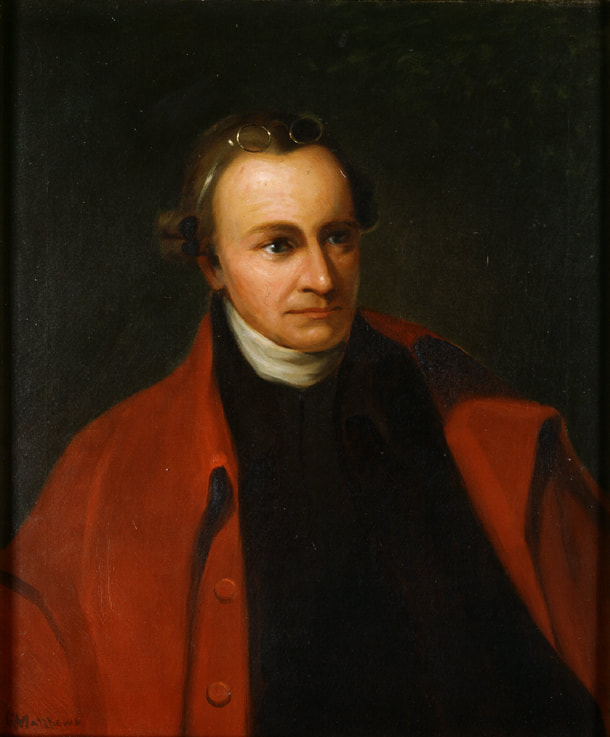
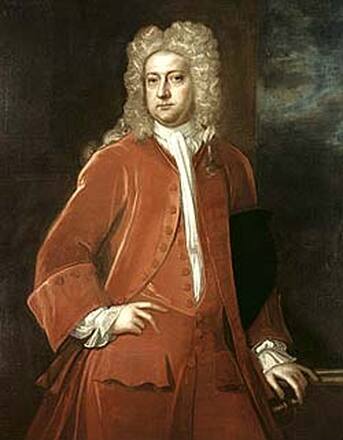
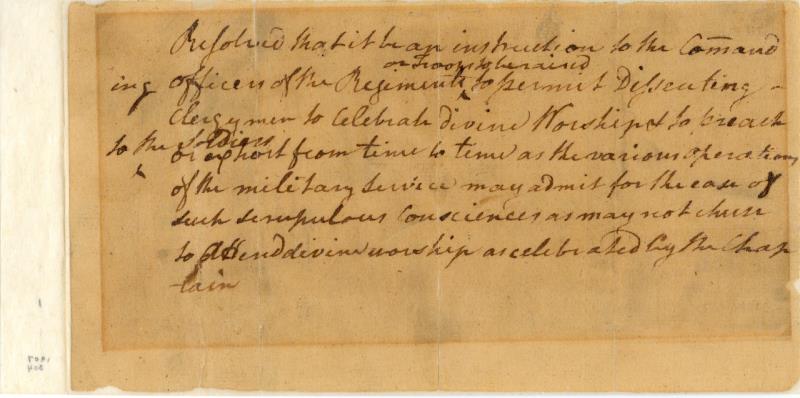
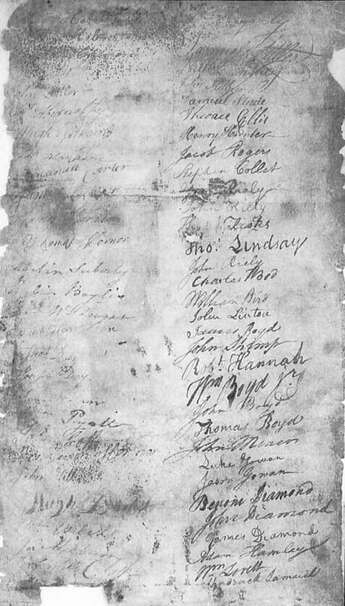
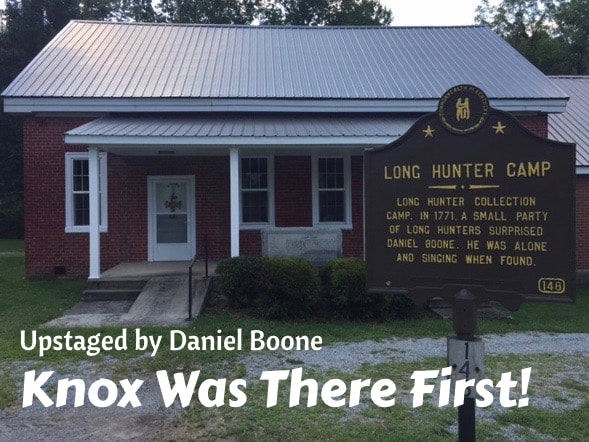
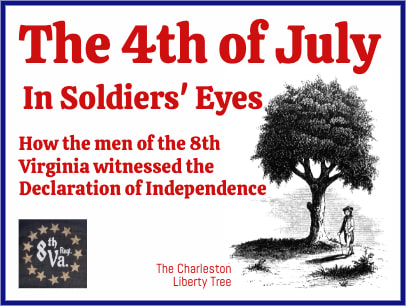

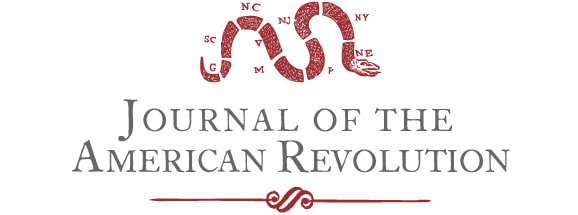
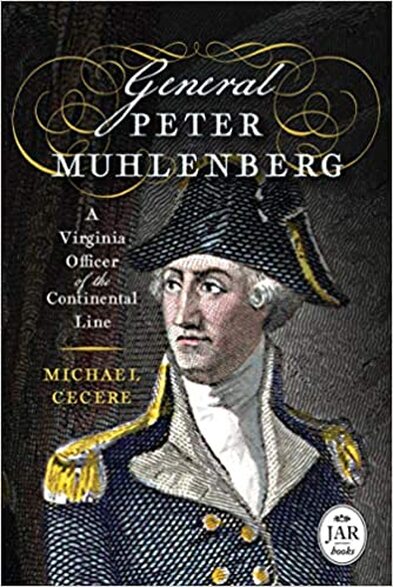
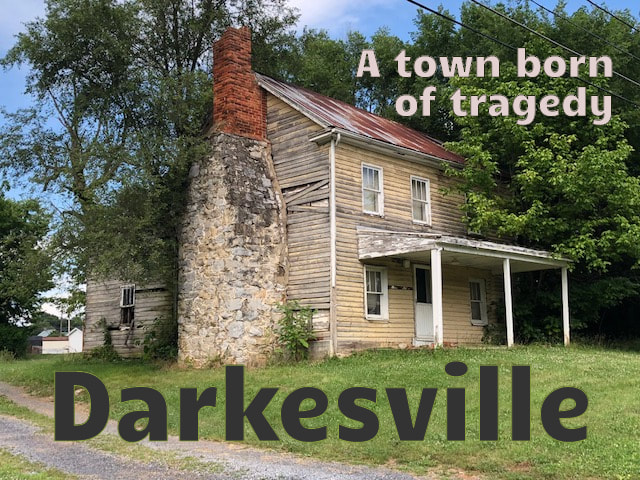
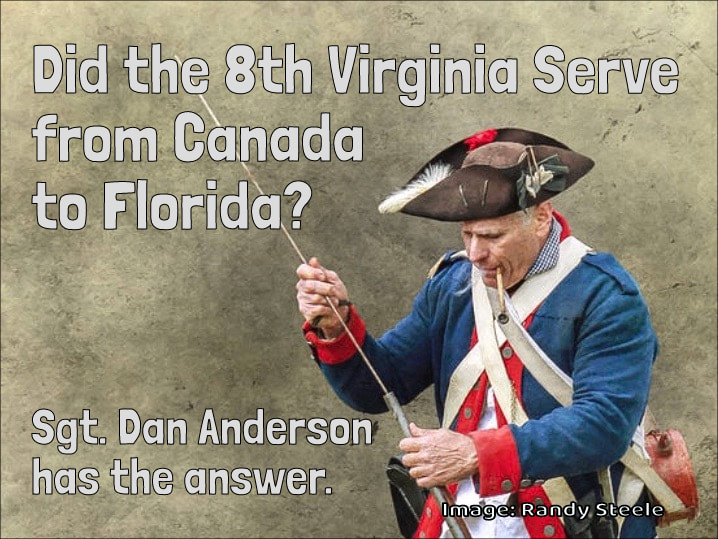
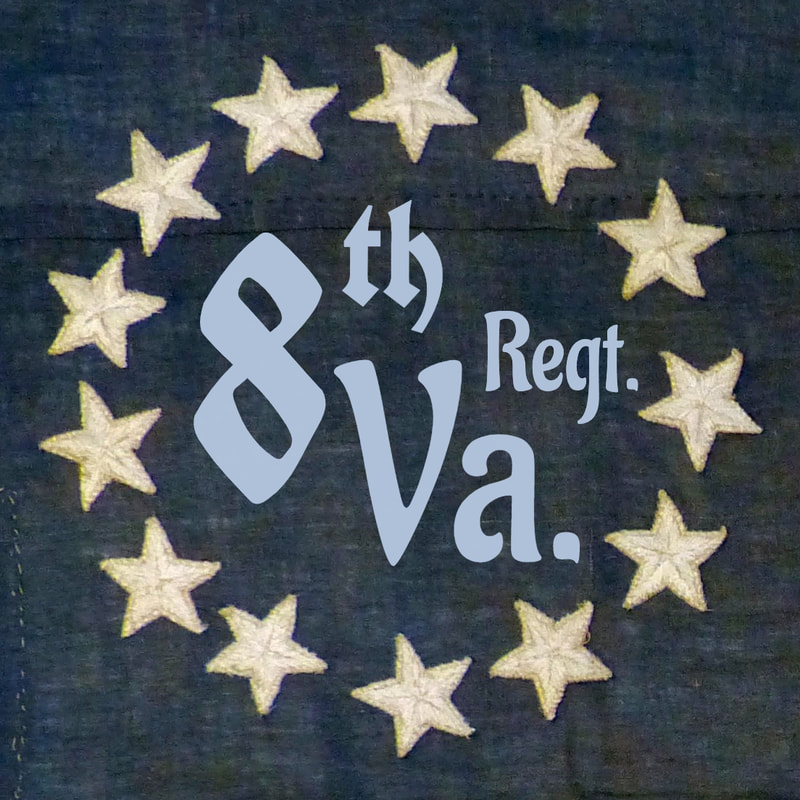
 RSS Feed
RSS Feed